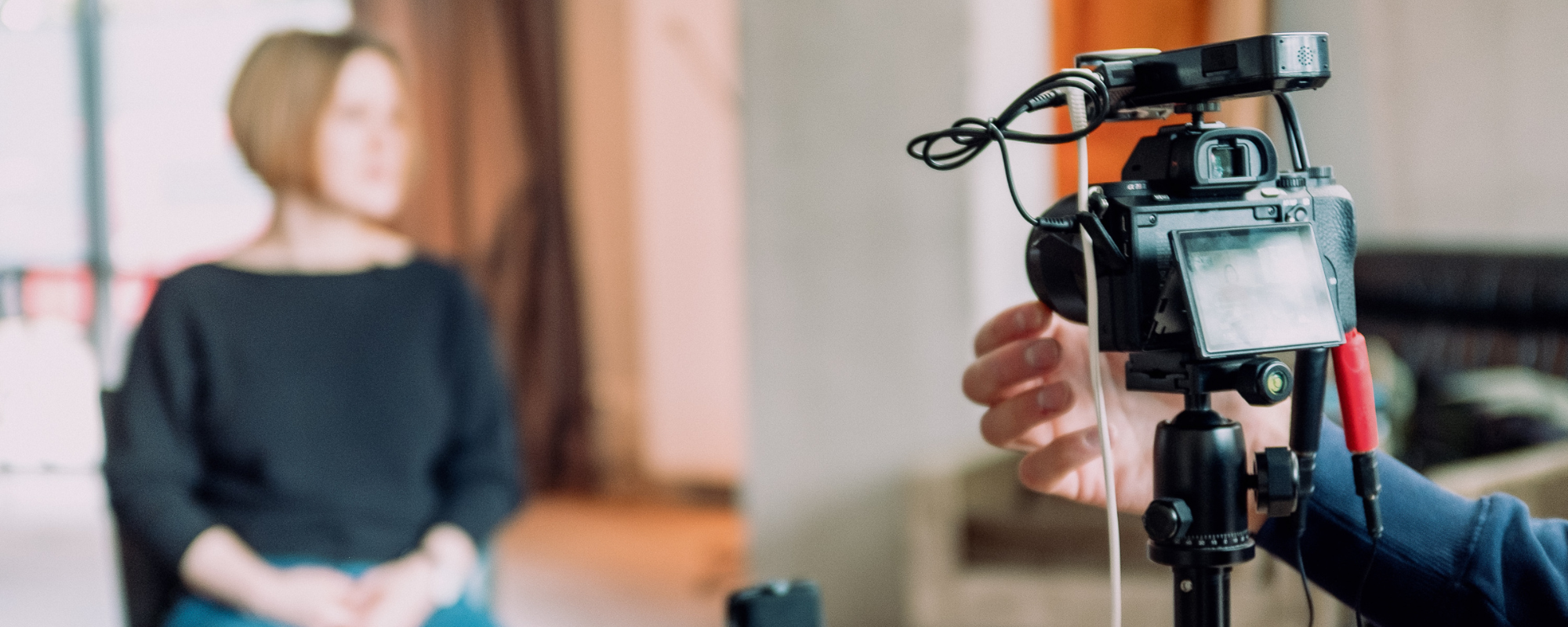Understanding media training basics will help you make the most of interview opportunities.
Public relations professionals live and breathe media, so it’s understandable if some of us overlook the importance of media training basics for non-media folks. After all, we’re constantly coordinating interviews–an average of 250 a year for us at Scatena Daniels–and typically on-site watching interviews unfold in real-time. Pitching and managing media interviews is nothing new for us.
For other people, though, an interview can be terrifying. Whether over the phone for an article, in-studio for a podcast, or on-camera for the local TV news, many people are extremely self-conscious of how they’ll come across in the media. That’s why mastering media training basics is imperative for non-media people, so they can go into every interview with confidence.
Why knowing media training basics is important
When you’re not constantly awash in media, being the focus of any type of article or segment can feel incredibly foreign. And, with the virality of content a looming possibility, people are more hyperaware of potential missteps than ever before.
This leads to your average person feeling very weary of a media appearance. They hear “interview” and they conjure up nightmares of an awkward conversation reaching hundreds of thousands of people on TikTok or, worse, a misinterpreted statement bringing the internet mob down on their heads.
When someone gets the right media interview tips, though, these worries fall aside. They’ll be prepared for any interview environment with talking points that keep the conversation lively and avoid possible missteps entirely by knowing which topics to avoid or pivot away from.
Media Training Basics: Media Interview Tips
There’s no reason an interview should be scary. Sure, it’s normal to feel nervous, there’s nothing wrong with that. In most cases, though, you should enter an interview with confidence. When you’re confident, viewers, listeners, and readers will know it and trust you more. Here are some basic media interview tips to nail any interview.
Prepare talking points, not a script
This may seem obvious, but you’d be surprised how many people go into interviews without a plan of what to say. The number one way to sound confident in an interview is to arrive with planned talking points ahead of time.
These should be distilled into short, memorable bullet points that you can mentally reference at any point during an interview. Try to anticipate what a reporter might ask and draft a talking point around those potential questions. Do not draft these talking points to repeat them word-for-word in the interview.
You need the interview to come off as conversational and that won’t happen if it seems like you’re reading off a script. Keep your talking points short and sweet, and practice expanding on them before the interview.
Be mindful of your body language
Anytime you’re doing an interview in person–whether for TV, print, or a podcast–your body language plays a huge role in the conversation. If you appear uncomfortable, the interviewer and their audience will notice. So even if you are uncomfortable, don’t let your body language show it.
If you’re seated for the interview, sit up straight with good posture. Avoid fidgeting or tapping your feet if possible. Be intentional with any movements–use your hands to emphasize a point instead of tapping your fingers together nervously. Keep your body open by not crossing your arms across your chest.
When you prioritize a relaxed yet confident body language, your mind will follow, no matter how nervous you are. Strong body language will inspire confidence in the interviewer, their audience, and yourself.
Remember why you’re there–you are the expert!
Regardless of the topic of the interview, you’re there because they need you there. You are there because you will add value to the story the reporter or producer is working on.
You’re not the subject of an interview by accident. You are there because you have the expertise that is needed. That expertise should be the foundation of your confidence. As you prepare for the interview, infuse the expertise into your talking points to consistently remind yourself that you’re providing value. You wouldn’t be interviewed if your insight wasn’t necessary–remember that and you will exude confidence in a great interview.
Don’t be afraid to ask for formal media training
You’re being interviewed for your expertise and value. Chances are, though, that your expertise is not in media relations. So don’t be afraid to ask a public relations professional for help.
PR professionals, like those of us at Scatena Daniels, live for public relations and are no strangers to media interviews. We’ve got in-depth media training to offer, where we help you prepare for an interview by drafting mock questions, creating talking points, providing extensive background on the interviewer, and much more. Whether you’re looking to refresh your existing skills or looking to master media training basics, we can help.
When the media knows you’re a great resource on an expert topic and can deliver an interview that is interesting, engaging, and informative, you’ll be considered for future opportunities. When you’ve mastered the media training basics, you can enter every interview knowing you’ll be an expert they keep coming back to.
Are you interested in how Scatena Daniels can help you secure (and crush) your next interview opportunity with our media training process? Contact us and let’s start a conversation.
